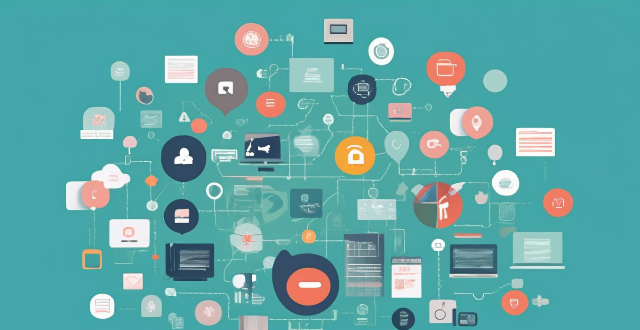Digital marketing is the use of digital channels to promote products or services. Key elements include SEO, social media marketing, email marketing, content marketing, PPC advertising, affiliate marketing, online PR, data analytics, mobile marketing, and influencer marketing. Benefits of digital marketing include cost-effectiveness, targeted audience reach, measurable results, global reach, and personalization.

What is Digital Marketing?
Digital marketing is a type of marketing that uses digital channels such as search engines, social media, email, and websites to promote products or services. It is an essential part of any modern business strategy and can be used to reach a wide range of customers in a cost-effective way.
Key Elements of Digital Marketing:
1. Search Engine Optimization (SEO): This involves optimizing your website and content to rank higher in search engine results pages (SERPs). The goal is to increase visibility and drive more organic traffic to your site.
2. Social Media Marketing: Social media platforms like Facebook, Twitter, Instagram, and LinkedIn are powerful tools for building brand awareness, engaging with customers, and promoting products or services.
3. Email Marketing: Email marketing involves sending targeted messages to potential customers via email. It can be used to build relationships, nurture leads, and promote products or services.
4. Content Marketing: Content marketing involves creating valuable content such as blog posts, videos, infographics, and podcasts that educate and engage your target audience. This helps build trust and establish your brand as an authority in your industry.
5. Pay-Per-Click Advertising (PPC): PPC advertising involves placing ads on search engines or social media platforms and paying each time someone clicks on them. This can be a highly effective way to drive targeted traffic to your site.
6. Affiliate Marketing: Affiliate marketing involves partnering with other companies or individuals who promote your products or services in exchange for a commission on sales made through their referrals.
7. Online PR: Online PR involves managing your brand's reputation online by responding to customer reviews, monitoring social media conversations, and creating positive press coverage.
8. Data Analytics: Data analytics involves tracking and analyzing data from various sources to gain insights into customer behavior and optimize marketing campaigns for better results.
9. Mobile Marketing: Mobile marketing involves reaching customers through their smartphones or tablets using tactics such as SMS messaging, mobile apps, and location-based advertising.
10. Influencer Marketing: Influencer marketing involves partnering with influencers who have large followings on social media to promote your products or services to their audience.
Benefits of Digital Marketing:
- Cost-Effective: Digital marketing is often more affordable than traditional marketing methods like print ads or TV commercials.
- Targeted Audience: Digital marketing allows you to target specific demographics based on factors such as age, gender, location, interests, and behaviors.
- Measurable Results: With digital marketing, you can track the performance of your campaigns in real-time and make adjustments accordingly to improve results.
- Global Reach: Digital marketing allows you to reach customers all over the world without being limited by geographic boundaries.
- Personalization: Digital marketing enables you to personalize your messaging based on individual customer preferences and behaviors, leading to higher engagement rates and conversions.